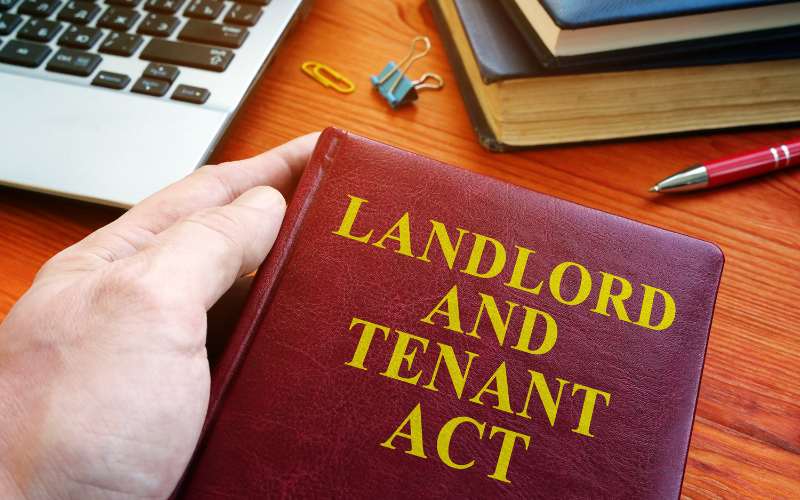Last Updated on March 18, 2024 by Kelvin Nielsen
If you’re a tenant in Connecticut, you have certain legal rights and protections against landlord retaliation. Unfortunately, despite these protections, some landlords may still engage in retaliatory behavior against tenants who assert their rights.
This can include anything from refusing to make necessary repairs to evicting the tenant in question.
Landlord retaliation occurs when a landlord takes negative action against a tenant in response to the tenant exercising their legal rights. This can include anything from filing a complaint with a government agency to withholding rent in response to substandard living conditions.
In Connecticut, tenants have the right to a safe and habitable living space, as well as the right to report any violations of these standards without fear of retaliation.
If you believe that your landlord has retaliated against you, there are several legal remedies available. These can include filing a complaint with the Connecticut Fair Housing Center, seeking an injunction against the landlord’s retaliatory behavior, or even filing a lawsuit against the landlord for damages.
Key Takeaways
- Landlord retaliation is illegal in Connecticut, and tenants have legal protections against it.
- If you believe that your landlord has retaliated against you, there are several legal remedies available, including filing a complaint or seeking an injunction.
- It’s important to know your rights as a tenant in Connecticut and to take action if you believe that your landlord is engaging in retaliatory behavior.
Understanding Landlord Retaliation
As a tenant in Connecticut, you have certain rights that protect you from retaliation by your landlord. (Here is a basic overview of the rights you have as a renter in Connecticut).
Landlord retaliation is when a landlord takes action against a tenant for exercising their legal rights, such as making a complaint about the living conditions or requesting repairs.
Examples of landlord retaliation can include:
- Raising the rent
- Threatening eviction
- Failing to make necessary repairs
- Reducing services, such as heat or hot water
- Refusing to renew a lease
If you believe your landlord is retaliating against you, it is important to document any evidence of the retaliation. Keep a record of any conversations or correspondence with your landlord, as well as any repairs or maintenance requests you have made.
Under Connecticut law, landlords are prohibited from retaliating against tenants who exercise their legal rights. If you can prove that your landlord is retaliating against you, you may be entitled to compensation or other legal remedies.
It is important to understand your rights as a tenant and to take action if you believe your landlord is retaliating against you. Contacting a tenant rights organization or an attorney who specializes in landlord-tenant law can help you understand your legal options and protect your rights as a tenant.
Legal Remedies for Retaliation
If you are a tenant in Connecticut and believe that your landlord has retaliated against you, there are legal remedies available to you. This section will provide an overview of the legal options you can pursue to protect your rights.
Connecticut State Laws
Connecticut has specific laws that protect tenants from retaliation by their landlords. Under Connecticut law, landlords are prohibited from retaliating against tenants who exercise their legal rights, such as filing a complaint with the housing authority or joining a tenant organization. Retaliation can take many forms, including eviction, rent increases, or harassment. (Here is a guide on landlord harassment in Connecticut).
If you believe that your landlord has retaliated against you, you can file a complaint with the Connecticut Fair Housing Center. The Center can investigate your complaint and provide legal assistance if necessary. You can also file a complaint with the Connecticut Department of Housing, which has the authority to investigate and enforce the state’s housing laws.
Legal Support and Advocacy
In addition to filing a complaint with the Connecticut Fair Housing Center, you may also want to seek legal support and advocacy. There are several organizations in Connecticut that provide legal assistance to tenants, including the Connecticut Legal Services and the Legal Assistance Resource Center of Connecticut.
These organizations can provide legal advice, representation, and advocacy to tenants who are facing retaliation from their landlords. They can help you understand your legal rights and options and work with you to develop a strategy for protecting your rights.
Conclusion
In conclusion, if you believe that your landlord has retaliated against you, it’s important to know that you have legal options available to you. By filing a complaint with the Connecticut Fair Housing Center and seeking legal support and advocacy, you can protect your rights and hold your landlord accountable for their actions.
Disclosure: The content herein isn’t a substitute for advice from a professional attorney. It’s only meant to serve educational purposes. If you have a specific question, kindly seek expert attorney services.
Sources: Connecticut Fair Housing Center, Connecticut General Statutes Title 47A, What Are My Rights As A Tenant In Connecticut?, What Is Landlord Harassment In Connecticut?

Hi, I’m Kelvin Nielsen, an experienced landlord and accomplished real estate lawyer. My focus is on answering your questions about renting in the hopes of making your life as a renter or a landlord a bit easier.







